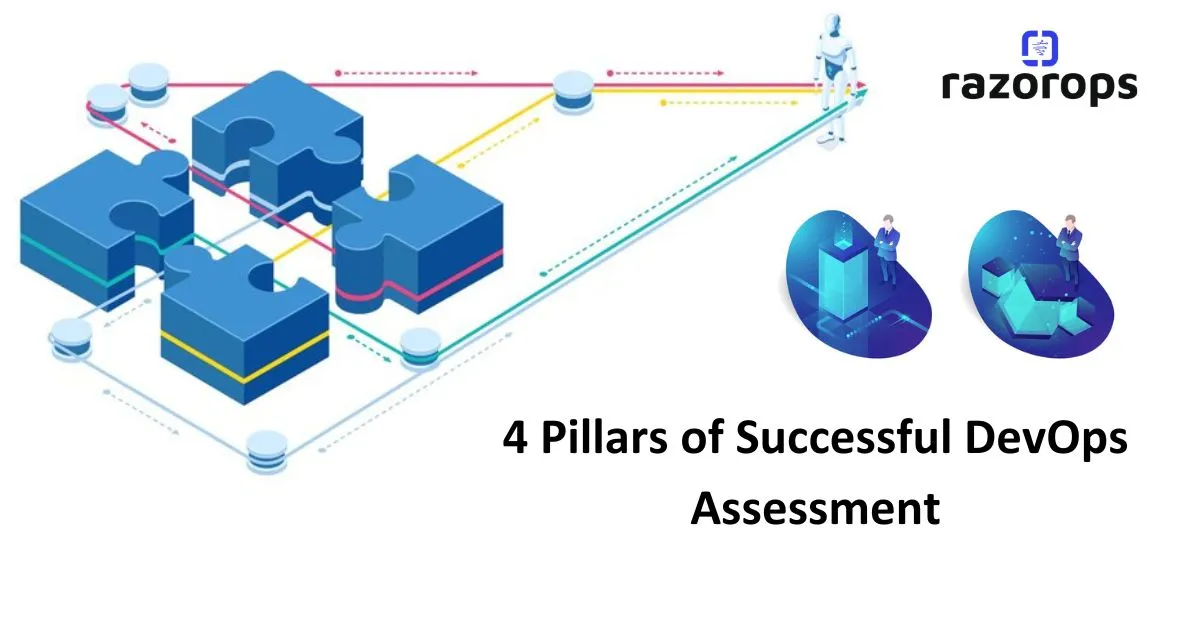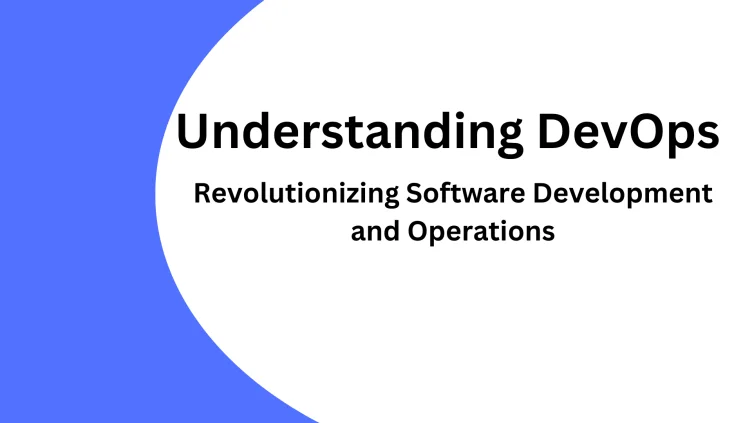4 Pillars of Successful DevOps Assessment

DevOps isn’t just a methodology; it’s a culture that fosters collaboration, automation, and continuous improvement within an organization. Conducting a successful DevOps assessment is crucial for understanding where your team stands in its DevOps journey and identifying areas for enhancement. To ensure a comprehensive evaluation, focus on these four pillars:
1. Culture and Collaboration
DevOps thrives on a culture of collaboration and shared responsibility between development, operations, and other stakeholders. Assessing the cultural aspect involves evaluating communication channels, the willingness to embrace change, and the level of collaboration among teams. Look for indicators of siloed behavior or resistance to cross-functional collaboration, as these can impede the DevOps mindset.
Are teams working in silos, or is there seamless collaboration between development, operations, and other departments?
Is there a culture of blame or a blameless postmortem approach to failures?
Are teams empowered to make decisions and encouraged to share knowledge across departments?
2. Automation and Tooling
Automation lies at the core of DevOps, enabling rapid, consistent, and error-free deployments. Assess the level of automation in your processes, including code deployment, testing, infrastructure provisioning, and monitoring. Evaluate the tools being used and their effectiveness in streamlining workflows and reducing manual intervention.
How extensively are CI/CD pipelines implemented for code integration and deployment?
What tools are in place for infrastructure provisioning, configuration management, and monitoring?
Are repetitive tasks automated, and is there an emphasis on scripting and infrastructure as code (IaC)?
3. Measurement and Metrics
DevOps operates on the principle of continuous improvement, and this requires measuring performance using relevant metrics. Assessing the measurement aspect involves defining key performance indicators (KPIs) aligned with business goals and tracking these metrics to gauge the success of DevOps initiatives.
What metrics are being tracked to measure the efficiency of development, deployment, and operations?
Are these metrics aligned with business objectives, such as deployment frequency, lead time, mean time to recover (MTTR), and change failure rate?
How frequently are these metrics reviewed, and are they used to drive improvements?
4. Continuous Learning and Improvement
Continuous learning and improvement are fundamental to DevOps. Evaluate the team’s ability and willingness to learn from failures, adopt new technologies, and continuously refine processes. Assess the existence of feedback loops, knowledge-sharing mechanisms, and a culture that encourages experimentation and learning.
Are there mechanisms in place for gathering feedback from both internal and external sources?
How is knowledge shared within the team, and is there a culture of continuous learning?
Are retrospectives conducted regularly to identify areas for improvement, and are action items from these retrospectives implemented?
Ingredients of a successful DevOps Assessment
A successful DevOps assessment is a carefully crafted blend of cultural insights, automation proficiency, metric-driven analysis, and a commitment to continuous improvement. It starts by delving into the organizational culture, gauging the extent of collaboration and shared responsibility among teams. Automation plays a pivotal role, requiring a thorough examination of CI/CD pipelines, infrastructure provisioning, and the efficacy of tools employed. The measurement and metrics component focuses on aligning key performance indicators with business goals, ensuring that data-driven insights guide decision-making. Finally, a commitment to continuous learning and improvement completes the mix, necessitating a culture that embraces feedback, fosters knowledge-sharing, and conducts regular retrospectives to refine processes. This holistic approach, encompassing cultural, technical, and analytical facets, is the recipe for a successful DevOps assessment that sets the stage for enhanced collaboration, efficiency, and innovation within the organization. Follow RazorOps Linkedin Page
Razorops, Inc.









